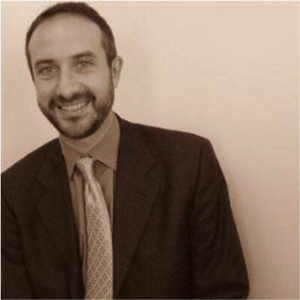Why Art Tech is Smart Tech: Q&A with Fractured Atlas
This post is part of a series dedicated to highlighting small and medium-sized enterprises across the country employing technology in new and innovative ways.
 Headquartered in New York, Fractured Atlas is a nonprofit that creates technology tools to eliminate barriers to artistic expression. The technology allows artist members to spend less time raising money, finding workspace, and selling tickets, and concentrate more on making art. The organization reaches a network of over 400,000 artists and arts organizations throughout every Congressional district in the nation. Given Fractured Atlas’ massive scope, it’s difficult to believe founder and Executive Director Adam Huttler was the organization’s lone employee, working out of a studio in East Harlem, in the early 2000s. Today, the organization employs more than 30 staffers, and up until this past March, I was one of them. Under Adam’s tutelage, I completed a two-year fellowship at Fractured Atlas in which I explored opportunities for the arts community to get involved in advocacy efforts around technology policies that impact them. I reconnected with Adam to get his take on the intersection between technology, the arts, and entrepreneurship.
Headquartered in New York, Fractured Atlas is a nonprofit that creates technology tools to eliminate barriers to artistic expression. The technology allows artist members to spend less time raising money, finding workspace, and selling tickets, and concentrate more on making art. The organization reaches a network of over 400,000 artists and arts organizations throughout every Congressional district in the nation. Given Fractured Atlas’ massive scope, it’s difficult to believe founder and Executive Director Adam Huttler was the organization’s lone employee, working out of a studio in East Harlem, in the early 2000s. Today, the organization employs more than 30 staffers, and up until this past March, I was one of them. Under Adam’s tutelage, I completed a two-year fellowship at Fractured Atlas in which I explored opportunities for the arts community to get involved in advocacy efforts around technology policies that impact them. I reconnected with Adam to get his take on the intersection between technology, the arts, and entrepreneurship.
Courtney Duffy (DisCo): Adam, you have a background in the performing arts, and you are a self-taught software developer. What role does your creativity play in writing code and, conversely, how have your tech skills empowered you to create a successful organization that serves artists?
Adam Huttler (Fractured Atlas): Albert Einstein supposedly defined creativity as “intelligence having fun.” Just as there are many kinds of intelligence, creativity can manifest in myriad contexts. The subjective experience of having a breakthrough idea or recognizing a powerful but non-obvious connection is, for me, the same whether I’m playing music or writing code or creating a new business. You’d have to ask a neuroscientist to know for sure, but I’m guessing there are similar underlying cognitive patterns as well. You ask about coding specifically; in my experience that can be a deeply satisfying, highly creative activity. I’ve also hired and managed dozens of software developers over the years, and I have absolutely observed a correlation between generally creative minds and talent at writing code. Like making art or telling a story, any software problem can be solved in countless different ways. An inexperienced, uncreative coder might take a brute force approach that relies on copying and pasting from another code base. A creative coder sees each new problem with fresh eyes as a novel opportunity.
As for the role of tech skills in creating Fractured Atlas – I would definitely say that my understanding of technology and my experience as a software developer have been valuable assets over the years. I wrote the first generation of software that ran all of Fractured Atlas’s programs and back office operations. Some of that code is still in use today! More importantly, having a strong practical knowledge base in this area has helped me understand what’s possible, what’s easy, and what’s hard. That’s important for any entrepreneur whose business relies on technology.
DisCo: In what ways is Fractured Atlas powered by the internet?
Fractured Atlas: Fractured Atlas could not exist without the internet and the web. We were the first major arts service provider to be born in the internet era, and everything about how Fractured Atlas operates and creates opportunities for its members relies on the internet to function. Essentially all of our products and services are accessed and delivered online. Our back office operations are also all online, which allows us to have a geographically distributed workforce.
DisCo: How can cultural organizations – and the nonprofit sector at large – better employ technology to meet their goals?
Fractured Atlas: It’s less about specific technologies than it is about organizational culture and attitudes. Chief Technology Officers have occupied the C-suites of major corporations for a couple of decades now, but many nonprofits still think of technology as a product to buy or a task for interns. I’m not saying all nonprofits need a CTO or even necessarily a clear technology strategy, but more do than currently have them.
DisCo: What technology policies play the biggest role in enabling Fractured Atlas to realize its mission of eliminating barriers to artistic expression?
Fractured Atlas: Net neutrality is pretty important, since pay-to-prioritize bandwidth practices would be terrible for independent creatives. Copyright reform is important, too; right now the laws heavily favor corporate media over independent creators, which is a problem. They also make it far too difficult for artists to make legitimate use of each others’ work (e.g., in documentary films, commentary, etc.).
DisCo: What’s next for Fractured Atlas?
Fractured Atlas: Lots of exciting stuff! We’re working on launching an impact investing VC fund that will support entrepreneurs innovating at the intersection of technology and human creativity. We also just launched Artist Campaign School, which is training artists on running for elected office.
Courtney Duffy is a Research & Innovation Fellow at CCIA and an MBA Candidate at Dartmouth’s Tuck School of Business. Follow @cduffy90








